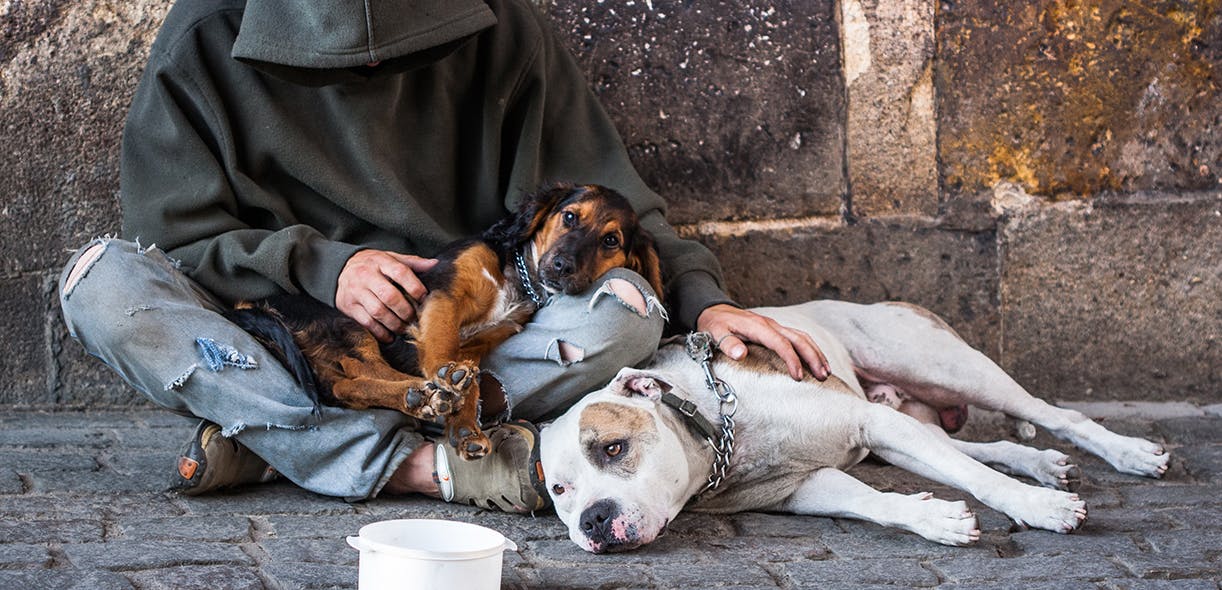It's a sad sight and one that's not infrequent in North American cities: a homeless person huddled in the bitter cold, sharing a piece of cardboard and a blanket with their dog. We know that homelessness is a tragedy for human beings, one that's often the result of a long list of heartbreaking events in a person's life. But what about that person's animal? Are homeless dogs unhappy?
Not really, according to research led by Dr Michelle Lem, an Ontario veterinarian and founder of Community Veterinary Outreach, an organization whose mandate is to improve the health and well-being of socially marginalized people and their companion animals.
In 2016, Dr Lem and her colleagues conducted a study involving 189 homeless youths in Ottawa, Toronto, Kingston and Hamilton, 89 of whom owned a pet. The researchers found that having a pet served as an anti-depressant for young homeless people. Those with a pet were three times less likely to suffer from depression than people their age who didn't have one. The researchers found that homeless youth who owned a companion animal felt less isolated and felt a sense of responsibility as well as a strong attachment to their pet.
Dr Lem's team also discovered that the vast majority of companion animals owned by homeless youth received suitable care and enough food. In some cases, they were in better shape than pets owned by people who aren't homeless. In fact, they observed that street youth often put their pet's welfare ahead of their own.
Dogs are a source of protection for their vulnerable young owners. They also engage passers-by and provide points of social contact with the public, helping make homeless youth less invisible. Having a companion animal improves a homeless person's general welfare, making that person less likely to abuse alcohol and drugs and reducing the likelihood of substance-related arrests.
So, contrary to popular belief, animals who live with their homeless owners generally do fine. Their owners also benefit from a happier existence than those who don't have pets. Let's hope this study will help break down some old stereotypes!
